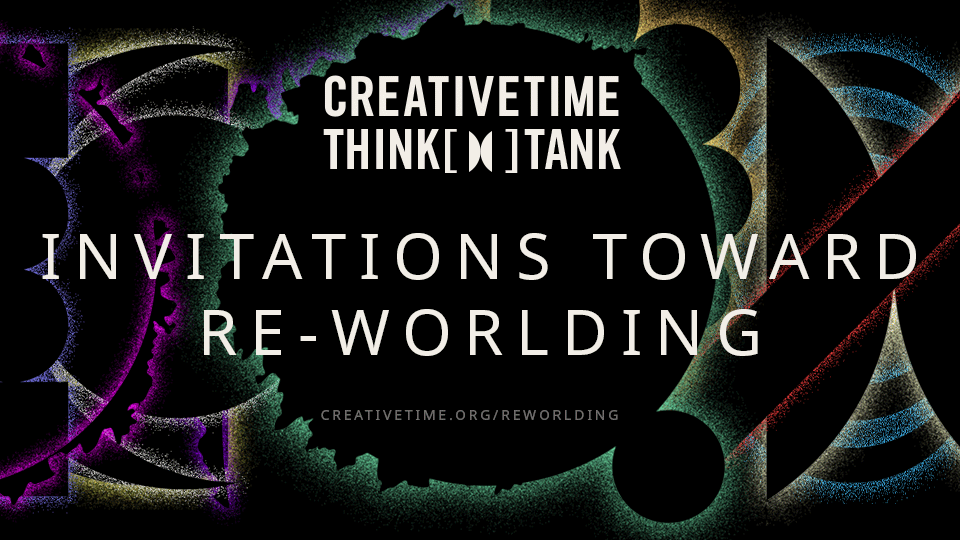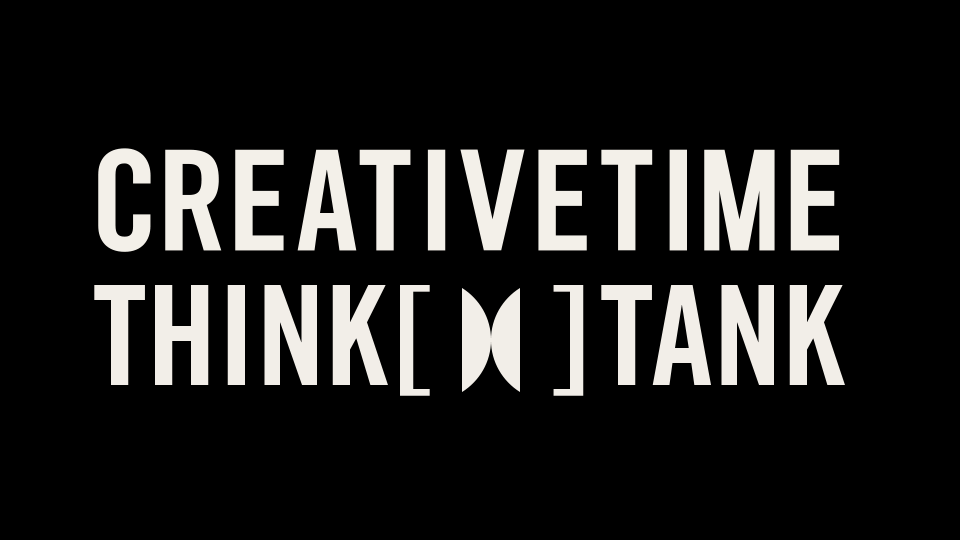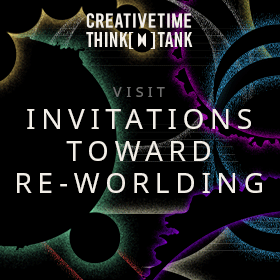Overview
WHY A THINK TANK
Initiated in response to the escalating demands to address the legacies of colonialism and systemic racism within our communities—a demand furthered by the ongoing pandemic—the Think Tank builds upon the decade-running Creative Time Summit, an annual global convening for the purpose of centering the voices of artists and creative practitioners in the development of tactics for political and social transformation, from both within and outside institutions.
A PATH-BREAKING FRAMEWORK FOR INTEGRATING THE TRANSFORMATIVE THEORIES, ETHICS, AND AESTHETICS THAT GUIDE LIBERATION WORK INTO ACTIONABLE PLANNING
Creative Time itself came into being in the 1970s, during a catalytic moment on the heels of a decade of large-scale protest movements and during a major financial crisis in New York City. The confluence of circumstances activated art workers and artists to build a wave of new, alternative spaces. Creative Time emerged to support living artists and to bring art into the everyday lives of the public, rooted in the political context of the day. As such, the organization has shifted and grown alongside the political practices of artists. Creative Time’s commitment to protocols for ongoing redefinition of our institutional practices and legacy have led to the Think Tank’s formation, three years before the organization’s 50th anniversary.
In the fall of 2020, we put out a call to re-imagine institutions and arts and cultural spaces together, inviting artists, creative practitioners, educators, activists, cultural producers, academics, and other agitators and boundary-pushing thinkers. The cohort formed in January 2021, with members Caitlin Cherry, Che Gossett, Emily Johnson, Hentyle Yapp, Kevin Gotkin, La Tanya S. Autry, Namita Wiggers, Prerana Reddy, and Sonia Guiñansaca. Adapting the “think tank” model, the non-sited and self-organized group spent 10 months in virtual conversations anchored in developing direct ways for shifting toward more equitable and sustainable approaches to cultural production.
Our greatest takeaways from the inaugural year of the Think Tank are the necessity to focus on process over product and to meet our communities at the point of their needs. We understand this framing to permeate into all functions of the organization. As such, we join the Think Tank’s call to action for an expansive infrastructure of care to guide all cultural production, which asks, and continuously iterates on the question, “what does repair within our work look like?”
The culmination of this work, Invitations Toward Re-worlding, provides a path-breaking framework for integrating the transformative theories, ethics, and aesthetics that guide liberation work into actionable planning.
Program Support
Lead program support for the Think Tank was generously provided by the Open Society Foundations and Rockefeller Brothers Fund.





